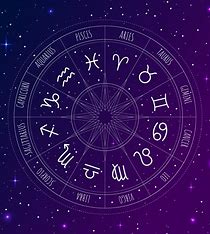Introduction: A New Dawn for Astrology
For centuries, astrologers manually crafted horoscopes based on complex planetary calculations.
Today, however, Artificial Intelligence (AI) is reshaping this ancient art in ways that would have once seemed like science fiction.
Imagine receiving hyper-personalized, real-time horoscopes at the tap of a button — powered by machine learning, big data, and predictive analytics.
This is no longer the future. It is the present.
Let’s dive into how AI is transforming horoscope generation and prediction — and what this means for seekers of cosmic guidance worldwide.
1. Traditional Horoscope Generation: A Quick Recap
Before AI, horoscope generation involved:
- Calculating planetary positions manually or using ephemerides.
- Interpreting zodiac signs, houses, aspects, and transits.
- Crafting predictions based on astrological wisdom and intuition.
This was a time-intensive and highly personalized process, often taking hours for a single accurate reading.
Limitations:
- Dependent on astrologer’s skill and experience.
- Difficult to personalize at scale.
- Vulnerable to human error.
2. The Entry of AI: How It Works in Astrology
AI leverages algorithms, neural networks, and massive astrological datasets to:
- Automate horoscope creation based on real-time planetary data.
- Analyze thousands of charts simultaneously for trends and patterns.
- Personalize predictions based on user profiles, birth charts, and behavioral inputs.
Key AI technologies in horoscope generation:
- Natural Language Processing (NLP): Helps AI craft readable, natural-sounding horoscopes.
- Predictive Analytics: Forecasts future events based on past astrological data patterns.
- Machine Learning Models: Continuously improve predictions based on new data.
3. Benefits of AI-Generated Horoscopes
a) Speed and Scalability
AI can generate millions of horoscopes in seconds — something impossible for human astrologers.
Example: Daily horoscopes for millions of app users generated without delay.
b) Personalization
Traditional horoscopes were often generalized (“All Leos will have a good day”).
AI enables ultra-personalization by using:
- Exact birth date, time, and location.
- Specific natal chart configurations.
- Behavioral data (e.g., moods, interests).
Result:
You get a horoscope tailored uniquely to your cosmic blueprint.
c) Consistency and Objectivity
Human astrologers may introduce personal biases.
AI, however, interprets data based on learned models and pattern recognition, ensuring consistent output.
d) 24/7 Availability
No need to book an appointment!
AI-powered apps deliver insights anytime, anywhere.
4. Examples of AI Transforming Horoscope Generation
Several platforms are already using AI to reshape horoscope delivery:
- Co-Star: Uses data from NASA and AI to generate personalized horoscopes.
- The Pattern: Offers deeply psychological, personalized forecasts based on AI interpretations.
- AstroGPT and KundliGPT: AI bots trained specifically in Vedic astrology to offer real-time readings and suggestions.
These platforms integrate astrological theory + AI technology for mass customization.
5. Behind the Scenes: How AI Horoscope Engines Are Built
Here’s how a typical AI horoscope engine operates:
- Data Collection:
Gather massive amounts of birth charts, planetary positions, and historical predictions. - Training the AI Model:
Feed the AI with patterns between planetary placements and real-world events. - Natural Language Generation:
Teach the AI to write engaging, human-like horoscopes. - Feedback Loop:
Users provide feedback (Was the horoscope accurate?), and the AI fine-tunes its model.
6. Are AI Horoscopes Accurate?
Strengths:
- Timing: AI excels at predicting transit timings, retrogrades, eclipses, etc.
- Pattern Detection: Finds hidden trends across huge datasets.
Weaknesses:
- Lack of Emotional Depth:
AI cannot intuitively “feel” your soul’s lessons or karmic debts. - Context Blindness:
AI may misinterpret rare or complex astrological patterns that a human would understand intuitively.
7. Human vs AI: A New Partnership, Not Competition
Rather than replacing astrologers, AI is becoming their cosmic assistant.
Human Astrologers Offer:
- Emotional healing
- Spiritual counseling
- Creative storytelling
AI Offers:
- Rapid chart analysis
- Data-driven trend prediction
- Mass customization at scale
Together, they can offer deeper, faster, and more personalized astrology than ever before.
8. Future Trends: Where AI Horoscope Generation is Heading
a) Hyper-Personalization
Horoscopes based on minute-by-minute transits, mood tracking, and even biometric data (e.g., heart rate variability).
b) Voice-Activated Astrology Assistants
Imagine asking Siri, Alexa, or ChatGPT for your real-time transit updates or “Today’s best time to make a decision”!
c) Predictive Life Path Mapping
AI could soon generate multi-decade life plans showing major milestones (career, marriage, health, spiritual awakening).
d) Integration with Wearables
Your smartwatch may soon send you cosmic alerts:
“Mercury is squaring your Sun today — avoid major decisions.”
Conclusion: A Cosmic Evolution
AI is not just transforming horoscope generation — it’s elevating astrology into a new digital era.
It brings speed, accuracy, personalization, and availability that were unimaginable even a decade ago.
Yet, at its heart, astrology remains a dance between stars and soul — something that no machine, however brilliant, can fully replace.
The best future lies not in choosing between AI or traditional astrology — but in embracing both for a richer, more empowered cosmic journey.

Leave a Reply